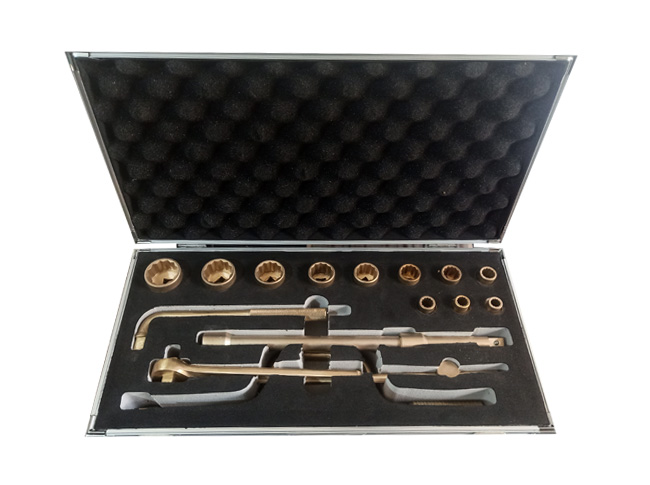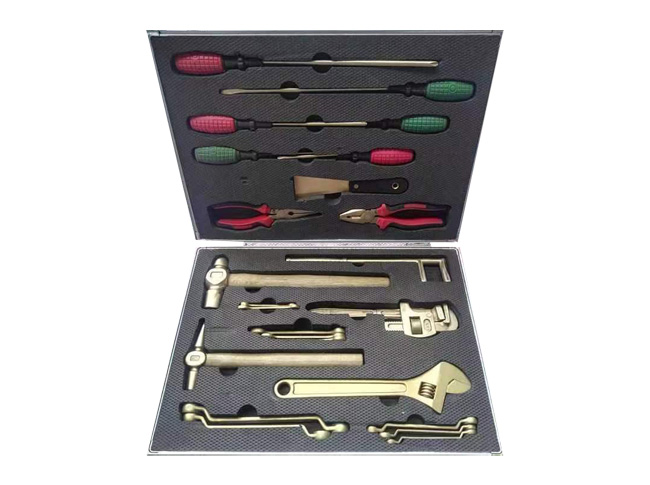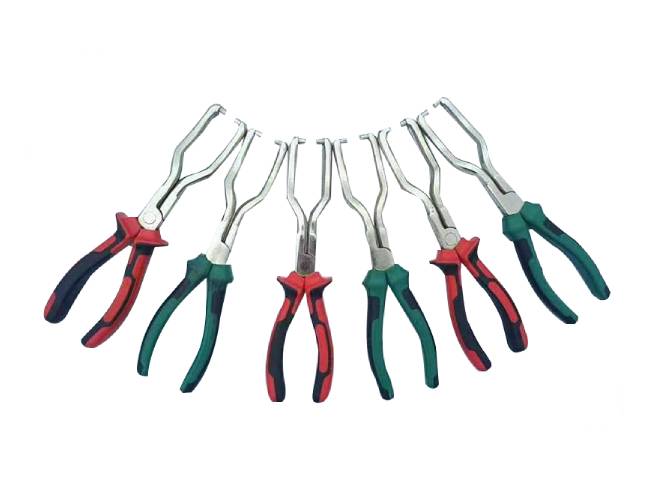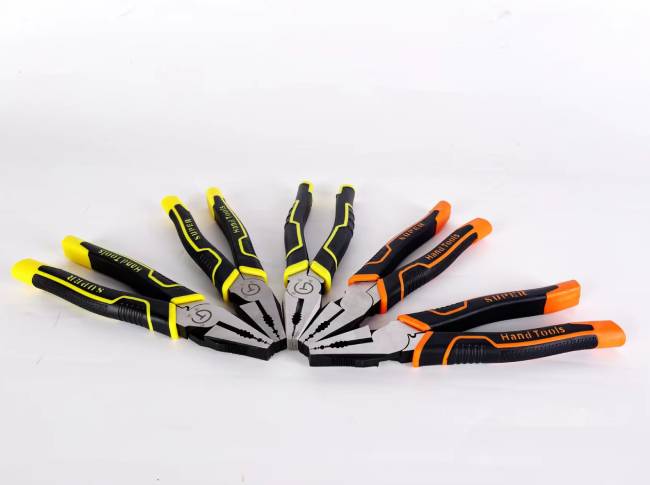1. Explosion-proof tools bring safety to our workers working in those flammable, explosive and corrosive workplaces, which makes our social safety more perfect, and also makes our staff work more assured.
After the use of explosion-proof tools in our daily work, there should be a proper maintenance phase, which is very critical to the life of the tool, because if the maintenance of explosion-proof tools is inappropriate, our tools can not serve us for a long time. First of all, we need to store the tool in a dry place, which is so that some parts of the work are not damaged.
In our daily work, after 20 consecutive knocks, the surface adhesion of the tool should be treated, and then used after cleaning, do not use continuously, so as not to heat the tool because of long-term friction, which may damage our tool products.
2. After use, clean the surface dirt and accumulation, and store it in a dry and safe place.
3. Percussion tool products, can not be continuously hit, more than ten times should have an appropriate interval, at the same time to remove the sticky debris in the product part in time before continuing to use.
4. Wrench products should not be used beyond force, let alone use casing or bind other metal bar materials to extend the force arm, and use hammer (except for tapping wrenches) to turn fasteners.
5. Cutting edge tools should be placed in the sink to gently contact the grinding wheel for sharpening, and should not be used for too much force and contact the grinding wheel for too long.
6. In the actual operation of knocking tools, it is necessary to remove on-site debris and oxides corroded by the working surface to prevent third-party impact.
According to the above performance and use, it shows that in the normal use process, the aluminum-copper alloy is more suitable for atmospheric pressure equipment and environments with less stringent requirements for explosion-proof conditions (such as gas stations, small oil depots, etc.). The applicability of the performance of beryllium copper alloy explosion-proof tools (such as refineries, gas transfer stations, gas production plants, drilling teams, etc.).






